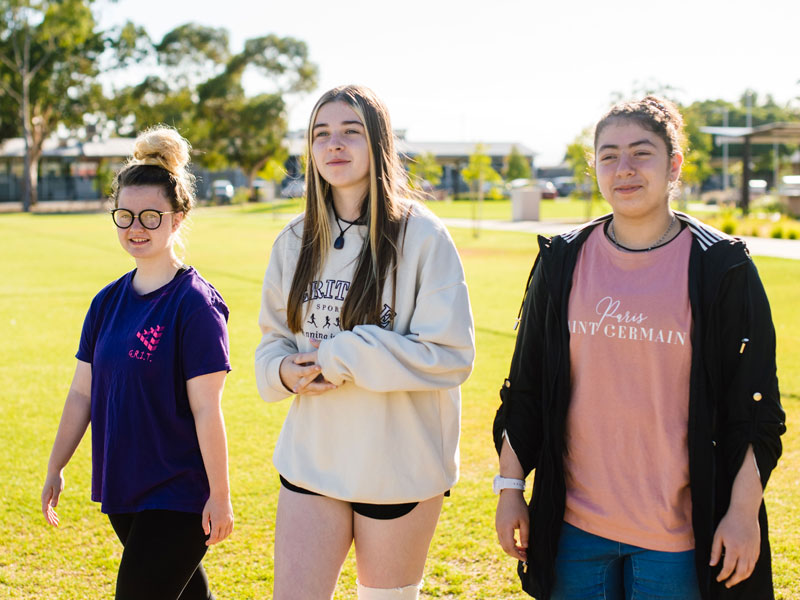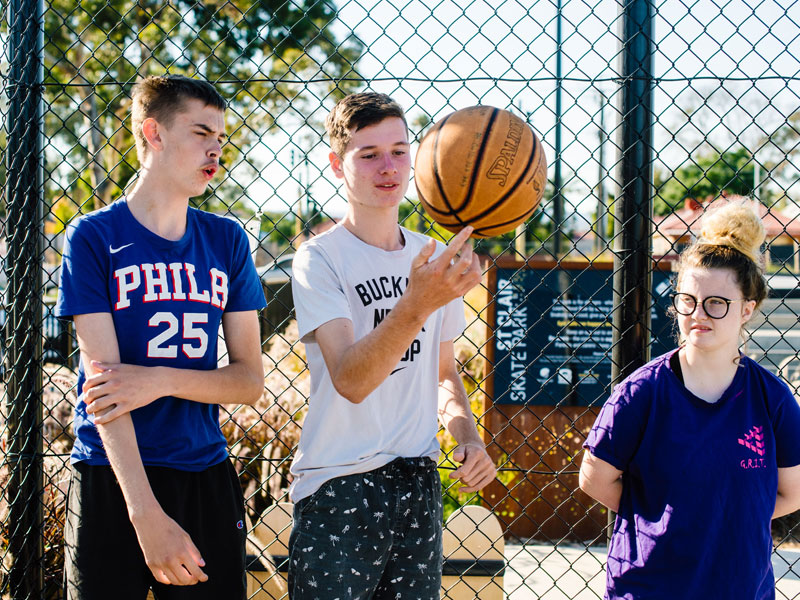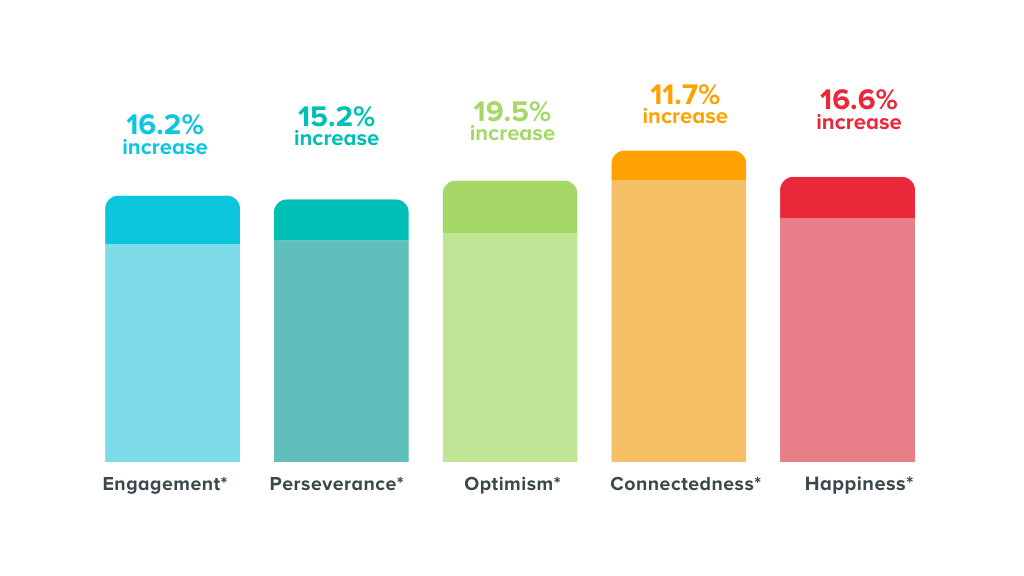Personal Leadership Programs
Using 40 practical tools that develop skills and strategies of students in areas of wellbeing, resilience and leadership, the Personal Leadership Program is our most comprehensive service.
Talk to us about how we can partner with your school to deliver our personal leadership programs.
Program overview
With the support of trained facilitators, our face-to-face personal leadership programs are delivered to year 10 students, one day a week, over a school term. Students engage through group discussions, video, self-reflection, goal planning and personalised coaching that allows the program to be tailored to the needs and goals of each student.
By adopting program principles, young people learn the skills to make positive choices and, as a result, are more motivated in school, confident in themselves, and able to tackle life’s challenges.
Delivery models include direct facilitation from Youth Opportunities, and partial and full licenses, which involve upskilling teachers or community members to deliver the program under the support and guidance of Youth Opportunities.
I am doing a lot more work, and am able to go and achieve my goals as well as helping others achieve theirs. This program has drastically changed my thought process and I believe it will help me get to where I want to be in life.
Graduate
Thank God for Youth Opportunities. Before the program, my daughter was withdrawn and unhappy. Now she has her confidence and spark back. She is a different girl!
Parent of Graduate
Topics covered
Our personal leadership programs are grounded in psychology theories and uses principles of positive psychology and cognitive therapy to help build emotional intelligence and resilience in young people.
- Self-Talk, Self-Image, and Self-Confidence
- Communication – positive, negative, and how to be a good communicator
- Happiness – from instant gratification to long-term happiness
- Stepping Outside Your Comfort Zone – how to get it done
- Organisation – skills that will help get your life in order
- Goal Planning – how to decide what you want and how to actually make it happen
- Conflict Resolution – because life happens
- Habits & Motivation – the good, the bad, and how to make them work for you
- Emotional Intelligence – what’s working for you, what’s not, and how to handle the not-so-great emotions
- Success Definer – because everyone is different, but we all have a dream
98% of program graduates feel more responsibility for taking action in their lives
%
have better relationships
%
have higher confidence
%
improved their self-image
%
are more motivated towards school
%
have developed better time management and organisational skills
%
have a good action plan to achieve their goals
%
have specific clear goals to aim for
%
recommend this program to others
%
have developed more meaningful reflection skills
Measure of Wellbeing
Positive wellbeing in adolescents is identified and measured using five constructs known as EPOCH: Engagement, Perseverance, Optimism, Connectedness, and Happiness. Our graduates’ EPOCH results are not only statistically significant, but they also demonstrate the immense impact of the program.
Measure of Psychological Distress
The Kessler Psychological Distress Scale (K10) measures general levels of distress, anxiety, and depression. Questions are asked of Personal Leadership Program Students in week 1 and week 9 of the program. In 2021, after completing our Personal Leadership Program, despite the continued negative effects of COVID-19, we saw a one-third reduction in the number of young people at risk of developing a mental health disorder.
The Logistics
1 day per week
Up to 60 hours of training
18 students per program
Up to 2 accredited trainers per group
Can be held off-campus
Graduation ceremony on completion of program
Up to 20 SACE points (SA only)
2 years of post-program support (Elevate Personal Leadership Pathway – SA only)
Access to scholarships (Elevate Personal Leadership Pathway – SA only)
The Methods
Student-led discussion
Group work
Trainer facilitation
1-1 coaching
Book work
Audiovisual content
Personal reflection
Weekly challenges






